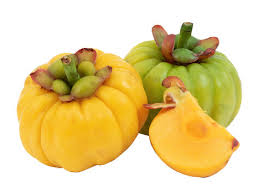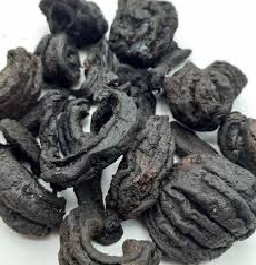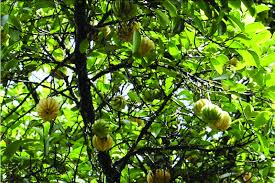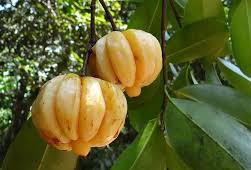Garcinia Cambogia: A Tart Fruit with a Growing Reputation
Garcinia cambogia, also known as Malabar tamarind or Goraka, is a tropical fruit native to South and Southeast Asia. This small, pumpkin-like fruit, characterized by its thick, deep vertical lobes, transitions from green when unripe to a yellowish tinge and finally orange upon ripening. While traditionally used in Ayurveda and Asian cuisine for its distinctive tartness, Garcinia cambogia has recently gained global attention as a popular dietary supplement.




A Tangy Flavor:
Garcinia cambogia's culinary appeal lies in its tart, slightly acidic flavor. This tanginess makes it a valuable ingredient in curries and other dishes, particularly in Sri Lankan cuisine, where it is used to add a unique sour note. The fruit's flavor profile complements a variety of ingredients, lending depth and complexity to culinary creations.
Traditional Uses and Modern Applications:
Garcinia cambogia has a long history of use in Ayurvedic practices, where it is valued for its purported medicinal properties. More recently, it has gained widespread recognition as a weight-loss supplement, with proponents suggesting it can aid in appetite control and fat reduction. However, scientific research on these claims is still ongoing.
Cultivation and Growth:
Garcinia cambogia thrives in the lowland wet regions, particularly in Sri Lanka, where it grows abundantly. The tree itself is a medium-sized evergreen, reaching heights of 50-60 feet. Interestingly, it bears both male and female flowers on the same plant. While not typically cultivated as a fruit tree, Garcinia cambogia is often grown as an economic crop in gardens within humid and temperate zones.
Interesting Facts
Garcinia cambogia is a shade-loving, relatively slow-growing tree.
The fruit's rind is the part most commonly used, both in cooking and supplements.
In Sri Lanka, Goraka is not only used to flavor curries but also for traditional medicine.
The global demand for Garcinia cambogia has increased significantly due to its popularity as a weight-loss supplement.
From its traditional culinary and medicinal uses to its modern-day applications as a dietary aid, Garcinia cambogia remains a fascinating fruit with a growing reputation. Its unique flavor and potential health benefits continue to make it a subject of interest in both culinary and scientific circles.






